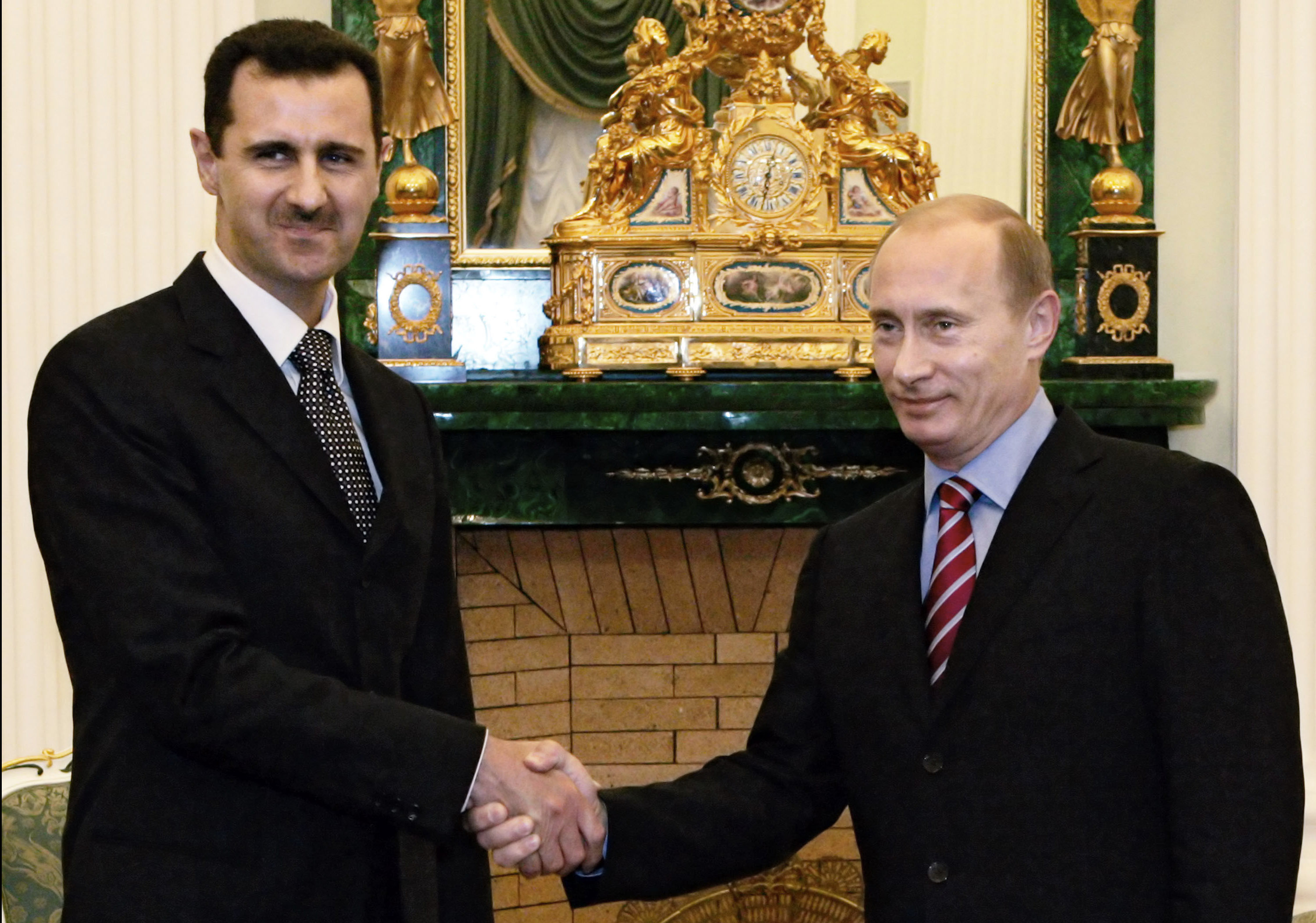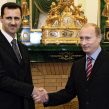
Moscow Trying Every Middle Eastern Door
Publication: Eurasia Daily Monitor Volume: 12 Issue: 159
By:

Throughout the year, the Middle East has remained engulfed in conflict as well as intense international diplomatic negotiations with Iran over its nuclear program. And just as the United States and other powers are grappling with the threats posed by the violence in the Middle East, so too is Russia. In fact, Russia has been trying to engage every possible and actual conflict in the region to obtain not only necessary economic benefits—such as, for example, the Saudi agreement to cut energy production so that global oil prices could rise (Oilprice.com, July 1)—but also to seek a solution to the civil war in Syria. At the same time, Moscow’s propaganda mouthpiece Sputnik claims that Russia has “serious influence” as a mediator in the conflict between Israel and the Palestinians (Sputnik News, August 13). And in the wake of the 5 + 1 agreement on Iran’s nuclear program, Moscow has stepped up its efforts to regenerate the old deal for S-300 anti-aircraft missiles. Discussions on broader weapons sales to Iran are also in the works—including the Su-30 fighter (Fars, August 26)
The above examples underscore the scope of Moscow’s efforts to supplant the US in the Middle East and gain acceptance there as a partner on par with Washington. This goal has been a key objective of Russian diplomacy since Yevgeny Primakov’s tenure as foreign minister (1996–1999) and is no less crucial for Russia today. Indeed, as the region continues to be gripped by terrorism and war, Moscow has tried to insert itself into every local conflict and peace process in the hopes of being seen as indispensable for achieving a resolution to all of them. Thus both Foreign Minister Lavrov and Director of the Security Council Nikolai Patrushev have called the Islamic State Russia’s greatest threat or enemy (Al-arabiya.com, April 22), which purportedly drives Russia’s urgent efforts—described by Patrushev—to form an international coalition against this extremist militant group (RT, March 5). Yet, at the same time, Patrushev admitted that Russia cannot stop the flow of its jihadist fighters to the Islamic State (The Guardian, July 15). And subsequently it has been revealed that Moscow is actually facilitating the movement of terrorists from its territory to Syria so that the Russian authorities will not have to deal with them domestically (see EDM, August 3).
Syria, due to its civil war, is at the center of Russia’s proposals for the Middle East. Despite the fact that Moscow contributes to the flow of fighters to Syria, it still publicly stands unreservedly behind Syrian President Bashar al-Assad and insists on his staying in power. In turn, al-Assad professes full confidence in Iran and Russia’s backing (Sputnik News, BBC News, August 26). This confidence in both Moscow and Tehran suggests the other side of Russia’s Syrian gambit, namely supporting Syria’s main patron in the Middle East—Iran. Already in 2014, some analysts regarded Iran as Russia’s “most reliable partner” in the region (Vestnik Kavkaza, September 14, 2014); and the new multi-party nuclear agreement with Iran removes all barriers to enhanced cooperation. President Vladimir Putin’s recent proposal to Jordan, Saudi Arabia, Turkey and Egypt to collaborate with Russia in the fight against Islamic State (Jordantimes.com, July 13) complicates such calculations, however. Specifically, it calls on Sunnis to fight other Sunnis for the benefit of Shiite-majority Iran’s Shiite client, al-Assad and to take out one of Iran’s number one rivals in the Muslim world—the Islamic State. Viewed in this light, it is not likely that the Kremlin’s proposal will enjoy much success, as it is too transparent a move against Sunni, and especially Saudi and Turkish interests. But it underscores Moscow’s efforts to play all sides against the middle in the region.
Nonetheless, in August–September 2015, Moscow’s anxiety about the Islamic State has apparently reached beyond these political gambits. Israeli and Western sources now report that Russian instructors are giving combat training to al-Assad’s forces using Russian armored personnel carriers; that a new Russian “expeditionary force” has arrived in Damascus; and that a Syrian air force facility has been converted into a forward operating base for Russian forces to fly combat missions in Syria. Photos suggest that Russian forces are flying MiG-29, Su-27 and Su-29 fighters, and operating the Pchela-1T drone in Syria. Il-76s have also flown to and from Damascus. Unconfirmed reports circulate as well of Russian militias in Salfana in Latakia; of Russia building a second base at Jableh, 25 kilometers north of Latakia; and of Russia allegedly providing satellite imagery to al-Assad’s forces and preparing to launch, either under United Nations or Collective Security Treaty Organization (CSTO) auspices, a separate Russian operation, possibly using airborne forces (Ynetnews.com, August 31; Washington Post, BBC News, The Daily Beast, The Aviationist, September 2).
Moscow has denied all these stories (Sputnik News, September 2). But if true, cumulatively they suggest a combined arms or a series of operations meant to rescue President al-Assad and essentially partition Syria between the contending forces to keep him in power. Indeed, if there is any credibility to these reports, this would mark a giant step forward in Russia’s determination to project military power beyond its borders—and particularly outside the former Soviet space.
At the same time, outside of Syria, Russia may be trying to again forge Palestinian unity in league with itself by inviting Hamas leader Khaled Mashal to Moscow. But Russia may also be trying to forge unity with Egypt, which is categorically opposed to Hamas’ support of Egyptian jihadists (Al-monitor.com, August 6). While a Middle Eastern coalition birthed and led by Moscow could possibly emerge, it is an unlikely prospect and it would only mean more regional war. Whereas strengthening Iran—which continues to support anti-Israeli and anti-Sunni terrorism and will, over time, be free to rebuild many of its capabilities with Western and Russian help—is hardly a blueprint for Middle Eastern peace. But then is that really Moscow’s goal?




